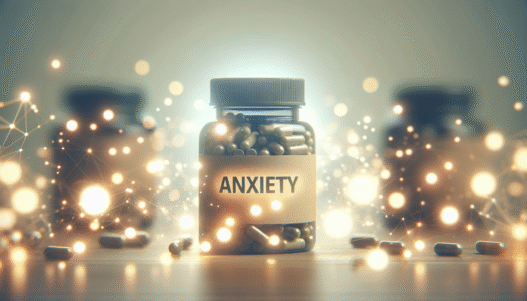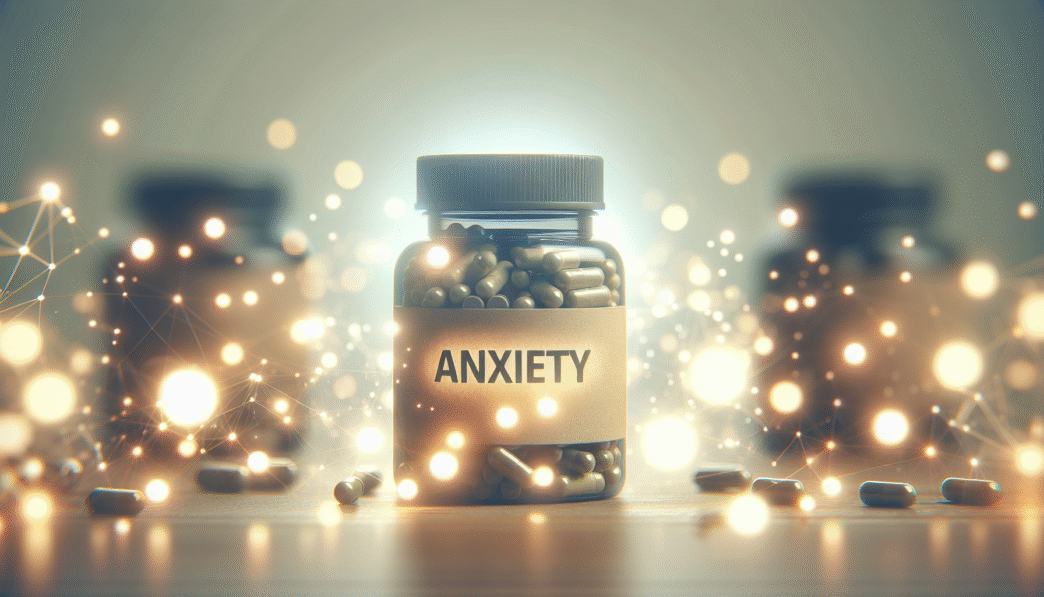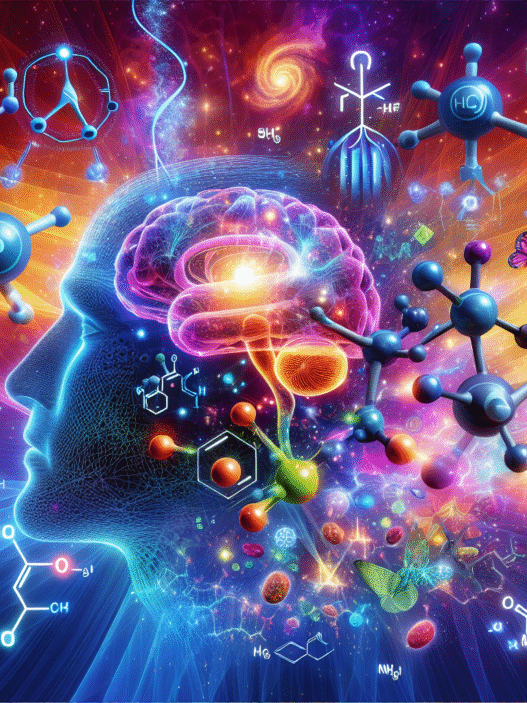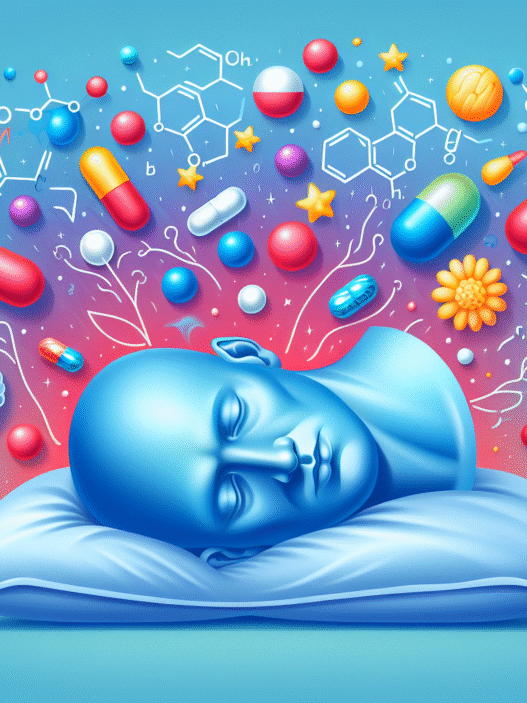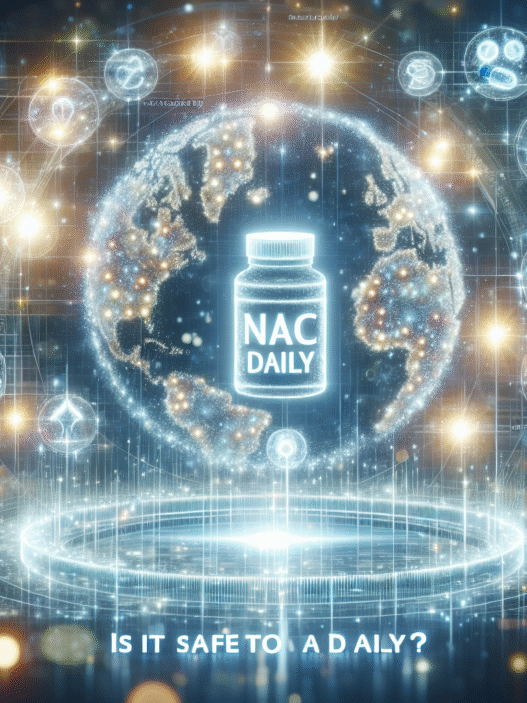Understanding NAC
What is NAC?
N-Acetyl Cysteine (NAC) is a supplement derived from the amino acid cysteine. It is primarily known for its role in restoring glutathione levels in the body, which is the main endogenous antioxidant responsible for maintaining oxidative balance in cells (NCBI). NAC is used in various medical settings, notably in the treatment of acetaminophen overdose and to support lung health by thinning mucus.
Mechanisms of Action
NAC exerts its beneficial effects primarily through its antioxidant properties. It stimulates the synthesis of glutathione, enhances glutathione-S-transferase activity, scavenges free radicals, and decreases glutamate transmission through group II metabotropic glutamate receptors (PubMed Central). This cascade of actions contributes to its ability to counteract oxidative stress, which is often linked to the pathogenesis of numerous psychiatric disorders.
Oxidative stress occurs when there is an imbalance between free radicals and antioxidants in the body, leading to cellular damage. This can result from lipid peroxidation, inactivation of enzymes, dysfunction of the respiratory chain, and DNA modification (PMC). By restoring glutathione levels, NAC helps maintain the integrity of cells and protects against the effects of oxidative stress.
In summary, NAC plays a crucial role in enhancing the body’s antioxidant defenses and is being studied for its potential benefits in mental health. For those asking, does NAC help with anxiety?, the connection between NAC’s antioxidant properties and its effects on mood and anxiety is being explored in research. Understanding its mechanisms can offer insight into its broader applications in health and wellness, especially concerning liver health and detoxification.
Benefits of NAC
N-Acetyl Cysteine (NAC) offers a range of benefits that are especially pertinent to individuals concerned about mental health, detoxification, and liver health. This section outlines its effects on psychiatric disorders, its detoxification properties, and its positive impact on liver health.
Psychiatric Disorders
NAC has shown potential in the treatment of various psychiatric disorders. Research indicates that NAC can enhance the response to therapies for conditions such as addiction, schizophrenia, and bipolar disorder. It works by replenishing glutathione levels, which help counteract oxidative stress in the brain. This antioxidant action may contribute to its effectiveness in managing symptoms related to mental health conditions.
| Disorder | Potential Benefits of NAC |
|---|---|
| Addiction | Reduces cravings in substance use disorders like tobacco and cocaine (GoodRx). |
| Schizophrenia | May alleviate negative symptoms. |
| Bipolar Disorder | Acts as an adjuvant treatment to improve outcomes. |
Detoxification Properties
NAC is recognized for its detoxification properties, making it a popular choice among those looking to support their overall health. It enhances the body’s ability to detoxify by facilitating the production of glutathione, one of the body’s most important antioxidants. This can contribute to better liver function and assist in detoxifying harmful substances from the body. Research has also highlighted NAC’s effectiveness in improving the response to treatments for chronic hepatitis C (PubMed).
Liver Health
Supporting liver health is another key benefit of NAC. It is commonly used in clinical settings to treat acetaminophen overdose, which can cause severe liver damage due to depletion of glutathione. NAC can replenish glutathione levels and protect the liver from toxicity. Furthermore, studies have indicated that NAC may help reverse fatty liver conditions and improve overall liver enzyme levels among those with liver ailments.
| Health Aspect | Benefits of NAC |
|---|---|
| Liver Detoxification | Enhances detoxification capabilities |
| Fatty Liver Reversal | May contribute to reversing fatty liver conditions. |
| Support in Overdose | Critical for treating acetaminophen overdose. |
This multifunctional compound holds promise in various areas of health, especially for individuals seeking to enhance their liver function, manage psychiatric conditions, and promote detoxification. For further insights on what is NAC N-Acetyl Cysteine used for?, explore the other sections of this guide.
NAC in the Treatment of Disorders
N-acetylcysteine (NAC) has garnered attention for its potential in treating various disorders, particularly those affecting mental health. This section delves into its application in addiction and compulsive disorders, schizophrenia and bipolar disorder, and anxiety disorders.
Addiction and Compulsive Disorders
NAC shows promising results in addressing addiction and compulsive behaviors. It modulates neurotransmitter pathways by regulating glutamate and dopamine levels, which can assist in managing behaviors associated with addictive substances. Research indicates that NAC may be effective for conditions such as nicotine and cocaine addiction, as well as pathological gambling and obsessive-compulsive disorder.
| Disorder Type | Potential Benefit |
|---|---|
| Nicotine Addiction | Regulates dopamine and glutamate levels |
| Cocaine Addiction | Modulates neurotransmitter pathways |
| Pathological Gambling | Reduces compulsive behaviors |
Schizophrenia and Bipolar Disorder
NAC has also been studied for its efficacy in treating schizophrenia and bipolar disorder. Its ability to alter dopamine release and its antioxidant properties can be beneficial for individuals dealing with these complex psychiatric conditions. NAC helps reduce oxidative stress by stimulating glutathione production, which is crucial for brain health. Studies suggest that its impact on glutamate levels and dopamine production plays a significant role in mitigating symptoms related to these disorders (PMC).
| Disorder | Specific Action |
|---|---|
| Schizophrenia | Reduces oxidative stress and dopamine levels |
| Bipolar Disorder | Alters neurotransmitter balance |
Anxiety Disorders
The potential of NAC in treating anxiety disorders is an area of ongoing research. While more studies are needed, current findings suggest NAC may help alleviate anxiety symptoms by influencing the brain’s neurotransmitter systems, making it a possible adjunct in anxiety management.
| Disorder | Expected Benefit |
|---|---|
| General Anxiety Disorder | Modulation of neurotransmitter pathways |
While NAC shows potential benefits for various psychiatric disorders, it is essential for individuals to consult with healthcare professionals to determine appropriate treatment plans tailored to their needs. For more information on the possible advantages and uses of NAC, refer to our article on what is nac n-acetyl cysteine used for?.
Potential Side Effects
While N-Acetyl Cysteine (NAC) offers several benefits, it also has the potential for certain side effects. Individuals considering its use should be aware of these reactions, especially if they have pre-existing health conditions.
Anaphylactoid Reactions
NAC may trigger anaphylactoid reactions, which can occur during or at the end of the loading dose infusion. Symptoms may include:
- Airway obstruction (bronchospasm)
- Angioedema
- Dyspnea (shortness of breath)
- Hypotension (low blood pressure)
- Shock
- Tachycardia (rapid heart rate)
- Urticaria (hives)
- Injection site reactions
Monitoring for these symptoms is advised, as they may be dose-related (Drugs.com).
Respiratory Symptoms
Respiratory symptoms have been reported in connection with NAC use. These may encompass:
- Cough
- Wheezing
- Stridor (a high-pitched sound during breathing)
- Shortness of breath
- Chest tightness
- Respiratory distress or bronchospasm
These reactions can be significant and should be taken seriously.
Cardiovascular Adverse Events
Cardiovascular issues may also arise as a side effect of NAC. Individuals using NAC should be aware of these potential risks, which can include a range of cardiovascular symptoms. Continuous monitoring is encouraged to detect any such adverse events (Drugs.com).
For a comprehensive view of other side effects, you can read more about the negative side effects of NAC. It is crucial for users to consult healthcare professionals before starting NAC to weigh its potential benefits against these risks.
Research Findings
Clinical Studies on NAC
Numerous clinical studies have investigated the efficacy of N-acetyl cysteine (NAC) in treating various psychiatric disorders, including anxiety. Evidence suggests that NAC may offer benefits due to its role as an antioxidant and anti-inflammatory agent. It primarily exerts its antioxidant effects by stimulating the synthesis of glutathione, a key antioxidant in the brain, which helps combat oxidative stress (PubMed Central).
Table 1 below summarizes findings from several studies on NAC and its impact on anxiety and other psychiatric conditions:
| Study | Sample Size | Condition | NAC Dosage | Key Findings |
|---|---|---|---|---|
| Study 1 | 90 | Generalized Anxiety Disorder | 2,000 mg/day | Significant reduction in anxiety symptoms |
| Study 2 | 50 | Post-Traumatic Stress Disorder (PTSD) | 1,200 mg/day | Notable improvements in PTSD symptoms |
| Study 3 | 100 | Depression | 1,800 mg/day | Reduced depressive symptoms correlated with NAC use |
These findings indicate that NAC may play a beneficial role in the management of anxiety disorders and related psychiatric conditions.
NAC and Inflammatory Pathways
NAC’s anti-inflammatory properties are closely linked to its ability to modulate oxidative pathways, which can be beneficial in treating psychiatric disorders influenced by inflammatory cytokines. NAC has been shown to reduce levels of inflammatory cytokines such as IL-6, IL-1β, and TNF-α. These cytokines are known to have a role in the pathogenesis of various psychiatric disorders.
The significance of NAC’s impact on inflammation is illustrated in the table below, which highlights the cytokines affected by NAC treatment:
| Cytokine | Function | NAC Effect |
|---|---|---|
| IL-6 | Involved in immune response and inflammation | Reduced |
| IL-1β | Mediates inflammatory processes | Reduced |
| TNF-α | Major pro-inflammatory cytokine | Reduced |
Through its immuno-modulatory activities, NAC may provide protective effects against chronic inflammation, which is linked to psychiatric disorders such as depression and schizophrenia. Patients suffering from inflammatory conditions often have a higher risk of developing these mental illnesses. The potential of NAC as an adjunct therapy for stress-related psychiatric conditions underlines its importance in future research directions.
For those concerned about liver health or detoxification, exploring the broader applications of NAC may also yield valuable insights into its other potential health benefits. Consider reviewing more on what is NAC n-acetyl cysteine used for? for further understanding.
Future Potential of NAC
Emerging Research Areas
N-Acetyl Cysteine (NAC) has gained significant attention in recent years for its broad therapeutic potential, particularly concerning mental health and neurodevelopmental disorders. Emerging research highlights its capability to modulate various physiological pathways, making it a candidate for treatments beyond traditional applications.
Studies indicate that NAC’s ability to enhance glutathione production could offer protective benefits against oxidative stress, potentially aiding in various health conditions. This antioxidant property plays a crucial role in conditions associated with inflammation and oxidative damage, which are prevalent in several psychiatric disorders PubMed Central. NAC may also improve neurotransmission, particularly in the context of disorders that affect mood and cognitive functions.
| Research Focus | Potential Benefits |
|---|---|
| Oxidative Stress | Reduced oxidative damage in psychiatric disorders |
| Neurotransmission | Improved communication between nerve cells |
| Inflammatory Pathways | Modulation of inflammation-related symptoms |
NAC in Neurodevelopmental Disorders
Research on NAC’s efficacy in treating neurodevelopmental disorders is particularly promising. Conditions such as Autism Spectrum Disorder (ASD) and Tourette’s Disorder have been the subject of investigations due to NAC’s unique properties. Studies have shown that NAC can promote glutathione production and support mitochondrial metabolism, which are vital in managing symptoms of these disorders.
In patients with ASD, NAC has demonstrated potential benefits in enhancing social behavior and reducing aggression. This suggests that NAC may play a role in addressing core symptoms associated with neurodevelopmental issues, possibly through its impact on the glutamatergic system PubMed Central.
| Disorder | Observed Effects of NAC |
|---|---|
| Autism Spectrum Disorder | Improved social behavior, reduced aggression |
| Tourette’s Disorder | Potential modulation of core symptoms |
NAC’s ability to effectively influence these neurodevelopmental disorders highlights its potential as a therapeutic agent, providing opportunities for targeted treatment strategies. As research continues, the implications of NAC for long-term health and mental wellness, particularly in this realm, may expand significantly. Overall, this expanding body of knowledge fosters a better understanding of how NAC functions and its potential benefits, particularly for those concerned about mental health and longevity. For more on the implications of NAC in various health contexts, refer to what is nac n-acetyl cysteine used for?.










